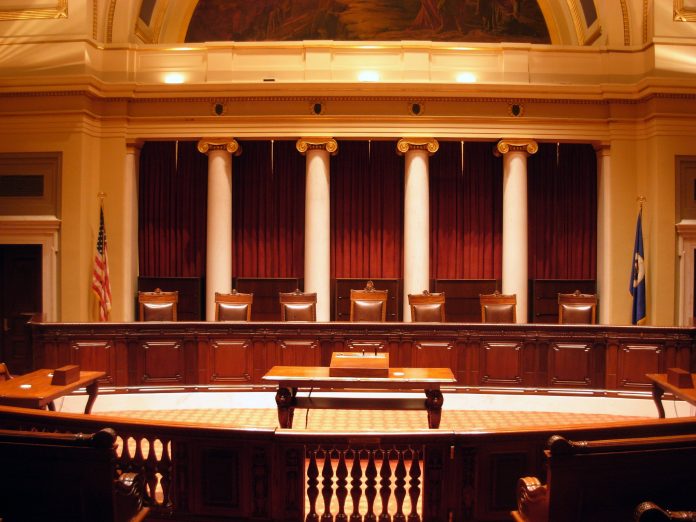In this article, Jagriti Bharati of Amity Law School Lucknow discusses the procedure to file a petition before NCLT to for recovering unpaid salary.
Credits and assets are significant for any company to keep it a going concern. Companies get itself credited through different types of loans. Various kinds of loans and lines of credit can help a startup company to get off the ground and manage itself through the harsh effect of a drop in revenue and tight cash flow. But whenever a company takes loan it needs to repay it, and when it is unable to repay its debts, the consequences may call from the collection call to filing case in bankruptcy court to collect its debts.
INSOLVENCY AND BANKRUPTCY CODE, 2016
India’s corporate regulatory system for the regulation of repayment of debts by the failing companies was previously done with fragmented laws. In the absence of a well-tailored insolvency and bankruptcy code debt repayment by a failing company becomes a difficult task. As a result, it adversely affected the interest of both the affected corporates as well as their creditors. To change the situation the government enacted Insolvency and Bankruptcy Code, 2016. Unlike previous law, where only the debtor was allowed to initiate the resolution or repayment process, the creditors (financial and operational), as well as corporate debtors both, are allowed to initiate the process under this code. The claim can be initiated before the “adjudicating authority” under Section 5(1) of the Code which is National Company Law Tribunal (NCLT) constituted under Section 408 of the Companies Act, 2013.
FINANCIAL AND OPERATIONAL CREDITOR
The creditors who credits the company can either be financial or operational as per the code. A person to whom any financial debt is owed, legally assigned or transferred is a financial creditor[1], and a person to whom an operational debt is owed, legally assigned or transferred is termed as an operational debtor.[2]
FINANCIAL AND OPERATIONAL DEBT
Financial debt is defined under Section 5 (8) of the Insolvency and Bankruptcy Code. It states –
A debt which is disbursed against the consideration for the time value of money along with its interest if any and includes:
- Money borrowed against payment of interests;
- Any amount raised by acceptance under any acceptance credit facility or its de-materialized equivalent;
- Any amount raised under any note purchase facility or the issue of bonds, notes, debentures, loan stock or any similar instrument;
- The amount of any liability in respect of any lease or hire purchase contract which is deemed as a finance or capital lease under the Indian Accounting Standards or such other accounting standards as may be prescribed;
- Receivable sold or discounted other than any receivable sold on non-recourse basis;
- Any amount raised under any other transaction, including, any forward sale or purchase agreement, having the commercial effect of borrowing;
- Any counter-indemnity obligation in respect of a guarantee, indemnity, bond, documentary letter of credit or any other instrument issued by a bank or financial institution;
- The amount of any liability in respect of any of the guarantee or indemnity for any of the items referred to in sub-clauses (a) to (h) of this clause.
An operational debt is defined under Section 5(21) of the Insolvency and Bankruptcy code. It states –
Operational debt includes a claim for the repayment of dues arising under any law for the time being in force payable to Central Government, any State Government or any local authority in respect of:
- Goods
- Services
- Employment
- Debt
From the definition of operational debt stated above it is clear that claim for repayment of dues related to matter of “employment” can be initiated under this code. The matter of employment exists where there is a relationship of employer and employee between two person.
WHO IS AN EMPLOYEE?
What makes one person an employer and the other an employee is not the nature of work performed by them but the manner how he is paid. In general terms, an employee is a person who has been hired by the employer to perform a particular job or specific labour of the employer. From this definition, it can be analysed that a person can be termed as an employee if:
- He gets a specific wage or salary.
- His work in under the control of the employer.
- He has signed implied or written contract related to his work with the employer.
Petition to NCLT for recovering of unpaid salary by an employee of a company
Under the Insolvency and Bankruptcy Code, employees and workmen are considered to be an operational creditor, and if the claim is related to the matter of employment, a petition can be filed before NCLT against the corporate debtors to resolve the issue.
If a company has not paid salary or wages to their employees or workmen, then the concerned employee and workmen can file a petition to NCLT for the recovery of their unpaid salary or wages.

Requirements to file a petition in NCLT
There are certain elements which need to be fulfilled by a person to file a petition in NCLT for the recovery of the unpaid salaries, and they are:
- The person should be an employee of a company against which he is filing a case.
- He should be categorised as an operational creditor under Section 5(20) of the IBC.
- He must owe an operational debt against the defaulter company.
- The minimum amount of salary due to the person must be one lakh rupees.[3]
- The maximum value of the salary must not be more than one crore rupees.
Insolvency Resolution by an Operational Creditor
On the occurrence of a default, an Operational Creditor (here employee) can deliver demand notice or a copy of an invoice demanding payment of the amount involved in the default to the corporate debtor and the corporate debtor within ten days of receiving the notice or invoice may inform the creditor about:
- Existence of any dispute
- Record of the pendency of the suit or arbitration proceedings concerning such dispute filed before receiving the notice. A corporate debtor can also inform the creditor about repayment of the loan by sending attested copy of the:
- Record of electronic transfer of the unpaid amount from his bank account
- Record that creditor has encashed a cheque issued by the debtor
Application for initiation of corporate insolvency process
If the operational creditor does not receive either his payment or notice of pendency of any suit even after ten days of serving demand notice to the corporate debtor, then he can file an application to the NCLT for initiating a corporate insolvency resolution process. The creditor has to furnish certain documents along with the application to initiate the process:
- A copy of invoice or demand notice given to the corporate debtor by the operational creditor.
- An affidavit stating that there is no notice given by the debtors in respect of any dispute related to unpaid amount.
- A copy of the certificate from the financial institutions of the creditor stating that no amount has been paid by the debtor to the creditor as unpaid operational debt.
Within 14 days of receipt of the application by the operational creditor, NCLT will pass an order either for the acceptance or rejection of that application along with the reasons of its order.
Time limit for completion of the insolvency resolution process
The corporate resolution process needs to be completed within one hundred and eighty days from the date of the admission of the application to initiate the resolution process, but on the application of the resolution professional, NCLT can extend the period beyond within one hundred and eighty days.
Conclusion
The insolvency and Bankruptcy Code, 2016 is a weapon in the hands of the operational and financial creditors as against corporate debtors to recover its debts. This code gives the employees as well as workmen of the company a great opportunity with an easy and fast procedure to recover their unpaid salary by applying to NCLT as against the debtor.
LawSikho has created a telegram group for exchanging legal knowledge, referrals and various opportunities. You can click on this link and join:
https://t.me/joinchat/J_
References
[1] Section (7) of the Insolvency and Bankruptcy Code, 2016
[2] Section 5 (20) of the Insolvency and Bankruptcy Code, 2016
[3] Section 4(1) of the Insolvency and Bankruptcy Code, 2016
 Serato DJ Crack 2025Serato DJ PRO Crack
Serato DJ Crack 2025Serato DJ PRO Crack









 Allow notifications
Allow notifications



Sir….Good one. Kindly send me any specimen copy or draft of demand notice
I am Ram was working in a company who is recently (07/01/2019) gone under Insolvency resolution process. i have resign from the co. but after i co ordinate with HRD team they told me to you will not get Bonus part in your FNF salary. I want to know what happened if i will not get my bonus (which is allready mentioned in my CTC). what precaution i will take if he did not settle my dues. Best Regards
Reply
I am Rakesh Sharma is working in a company who is recently (28/02/2019) gone under Insolvency resolution process. 15 days before the company intimate me that IRP says your services not required, however, I have not received any written letter from IRP/Management. I have been working here since 7 years. I want to know what happened my Leave salary and Gratuity if company terminate my services. Can I take action against IRP if he did not settle my dues. Best Regards
Hi,
Thank you for sharing the information stated!
We would like to share that Dishnet Wireless Ltd. alongwith Aircel had filed INSOLVENCY AND BANKRUPTCY CODE, 2016 at NCLT, Mumbai. Thus we are the vendors of Dishnet Wireless Ltd. based in Kolkata are in problems with the company on the details for the below queries.
1. We haven’t got our payment since 4-5 months.
2. Business operations (QSR) stopped in February’2018.
3. Further, many on going P.O’s has not been issued or put on hold. Follow up of our invoices or invoices submissions is stopped or put on hold. Nobody in Aircel are cooperating etc. Mgmt is saying they have no idea about the settlement and asking us to wait.
4. We are stuck and would like to seek advice and way out to resolve the impasse.
Hi,
Thank you for sharing the information. Can you help us the details for the below queries.
1. Can group of employees can file the petition with NCLT, salaries are less than 1Lakh.
2. Is it required to approach the same jurisdiction where company registered (Delhi) or can we also contact the NCLT in any location (like Bangalore)
3. We haven’t got salaries for last two months (200+ employees). Business operations (QSR) stopped in July month and revenues since then. Mgmt is saying they have no idea about the settlement and asking us to wait for investors to return (travelling as they say).
4. Apart from salaries, Gratuity (left and active), PF and Income Tax settlement also due for last one year, can it be considered. What information / supportings required for this
5. As per the understanding, mgmt also preparing to file the insolvency. How and when the employee dues settlement happens and what needs to be done by us.